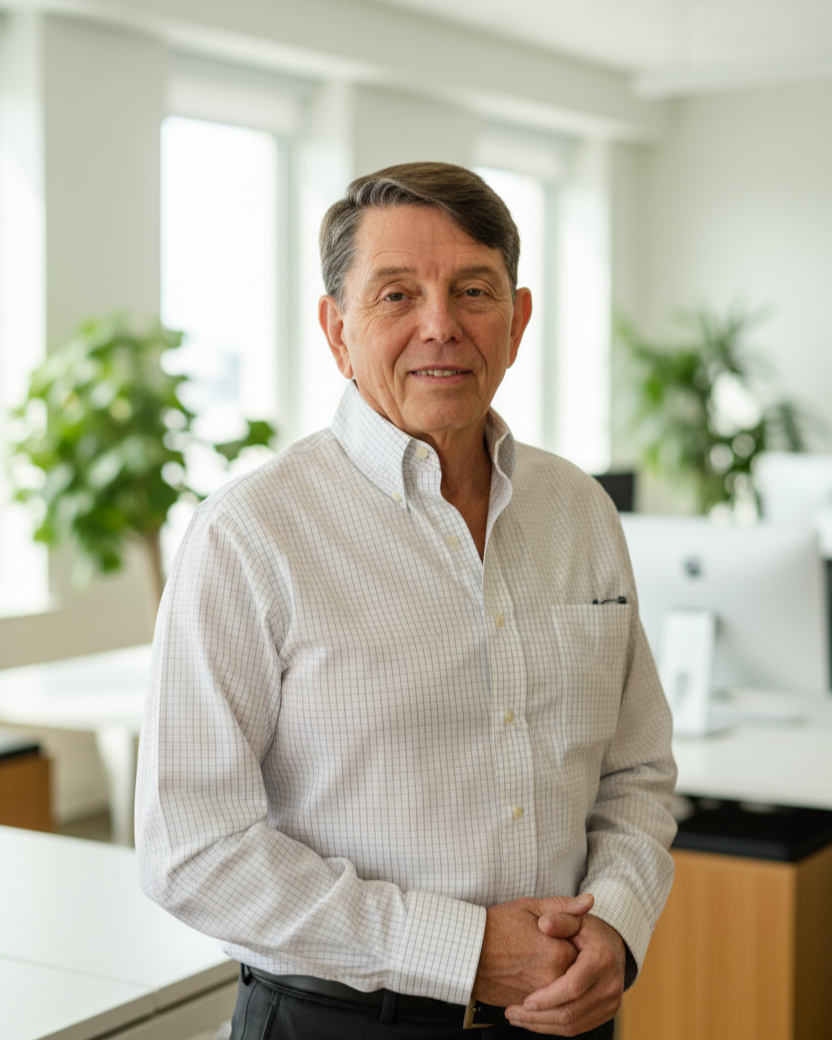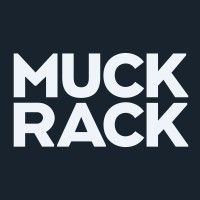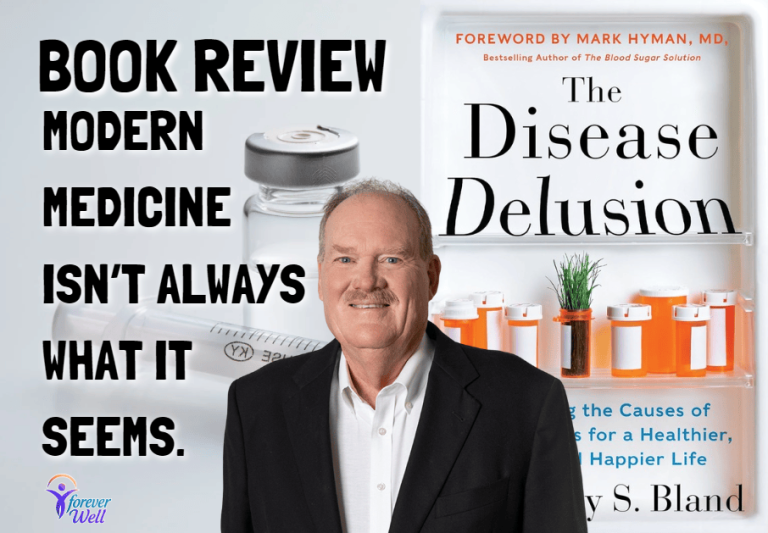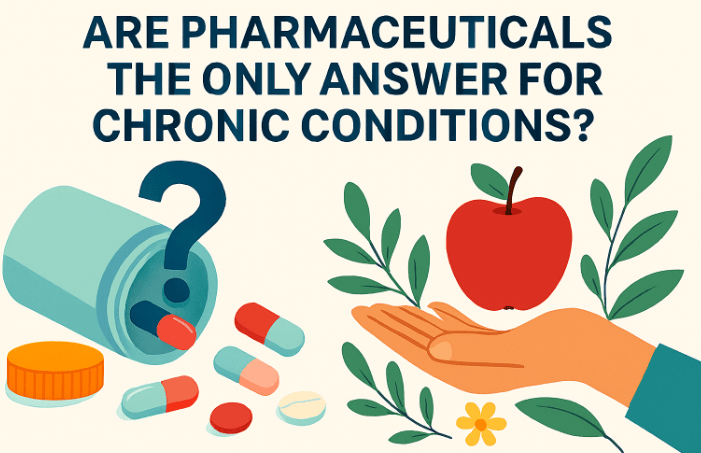It is not hard to understand why patients use alternative medicine.
For many, the imbalances in our bodies caused by certain pharmaceutical medicines have left them feeling disconnected, unheard, or simply unsatisfied with their healing journey through modern medicine.
Let’s take a closer look at why more and more individuals are dissatisfied with our current system, seeking gentler and more holistic alternatives such as natural and functional medicine.
Probably the strongest incentive is that people simply aren’t feeling better, or not truly better, under the guidance of the primary care physician and their pharmaceutical tools.
Let me start by talking about the energy of alternative medicine for a moment.
Natural and functional medicine honor the body’s innate ability to repair and restore itself. They work with the body, nurturing balance and harmony rather than forcing control.
I’ve touched on this idea before: most drugs work through interference. While they can be powerful, this interference often disrupts the body’s natural equilibrium, and over time, that imbalance can lead to new challenges.
So when we explore why patients use alternative medicine, we’re really talking about something deeper—an energetic and emotional desire to heal in ways that feel aligned, supportive, and whole.
Victim or Empowered?

A typical experience with modern medicine often involves a caring but rushed provider, typically a Doctor of Medicine (MD), Doctor of Osteopathic Medicine (DO) a physician, nurse practitioner, or physician assistant.
The visit usually ends with a prescription, almost always for a pharmaceutical drug. The practitioner searches for a diagnosis while you wait expectantly for their conclusion, and the treatment that follows typically focuses on managing symptoms.
This is what they have been trained to do: gather your symptoms, review lab results, make a diagnosis, and prescribe medication. In many cases, these treatments are meant to be taken basically for the rest of your life.
The doctor is well trained, but in only one way to treat your body and help you get well. And sadly, that is a misnomer because if you are expected to take treatment for the rest of your life, you are not expected to get well.
You’re beginning on the road of a lifelong commitment to the pharmaceutical approach to health and wellness. So the question arises: do you energetically feel like a victim in this process, or empowered?
It isn’t about blaming doctors.
Most truly care and do their best within the system that trained them. But they also hold the power to help shape the future of medicine and have a responsibility to assist the evolution of healthcare. They must encourage medical schools to expand their understanding of the human body, what truly causes disease, and what it takes to help the body recover.
It is time our medical schools begin teaching the only protocols that have been shown to reverse and heal chronic and autoimmune diseases. Those are the protocols of natural and functional medicine.
Not long ago, I had some significant dental work done. One of the dental assistants knew about my interest in natural medicine and shared her own story of seeing a functional medicine doctor.
Her experience mirrored so many others I’ve heard, stories of people who finally felt seen, supported, and empowered on their healing journey.
Sandy, not her real name, spoke of her mental health issues, digestive problems and weight gain. Her most recent trip to her OBGYN came with a suggestion for another pharmaceutical prescription. She realized it was time for change.
Her visit to a local functional medicine medical doctor was an eye opening experience. The recommendations were challenging but Sandy was inspired. The idea that she could play a significant role in how she was feeling fueled her determination to do what was required.
Her doctor told her that a new diet would start to improve her mental health issues. And the diet along with movement would trigger some weight loss. He explained that he would be her guide but she had to do the work.
If you had that kind of experience with a healthcare provider, how would you feel—empowered or like a victim?
We all make our own choices, and there’s no place for judgment in that. Life can be challenging, unpredictable, deeply rewarding, and even joyful all at once. Each of us walks our own path and reaches understanding in our own time.
My only hope is that people become more aware of the choices available to them. Because once you truly understand your options, you begin to reclaim a sense of power over your own health and healing.
Let’s take a closer look at this so I can help open a few eyes to the real value of what many call “alternative medicine.”
9 Reasons Why Patients Use Alternative Medicine
(also known as Natural and Functional Medicine)
1. Frustration with Conventional Medicine
Conventional medicine deserves recognition for what it does well. It excels in trauma care and performs admirably in the treatment of infectious diseases. Yet when it comes to chronic and autoimmune conditions, the system often falls short.

Despite more than seventy-five years of relying on pharmaceutical solutions, we are still without true cures for many of these illnesses.
If you look around at friends and family, you’ll see the story clearly written. Many people feel tired, dependent on daily medications, and uncertain about their long-term health. Common complaints include rushed appointments, unclear diagnoses, and an ongoing sense that their treatments manage symptoms rather than address causes.
This frustration isn’t limited to patients.
In a 2023 Gallup poll, only 18% of Americans had a positive view of the pharmaceutical industry, while 60% viewed it negatively and 21% remained neutral. Even within the medical community, disillusionment is growing.
A survey by The Doctors Company—the nation’s largest physician-owned medical malpractice insurer—found that only 12% of doctors would recommend medicine as a career.
The overwhelming influence of the pharmaceutical industry has gradually taken the “art” out of the practice of medicine, replacing curiosity and human connection with paperwork and protocols.
As a result, both doctors and patients are yearning for a more personal, heart-centered approach to healing.
2. Desire for Natural, Non-Invasive Care
People today are becoming far more aware of the side effects and potential risks associated with pharmaceutical drugs. Many are beginning to seek drug-free, more natural approaches to their health and well-being.
This shift is especially evident among those under 50 who have watched their parents and grandparents rely on a growing list of medications—often without seeing meaningful improvement.
Young parents, in particular, are scared. They’re seeing children diagnosed with chronic illnesses at younger ages and are yearning for safer, more sustainable options. Many are now asking the hard questions that modern medicine and public health agencies have yet to fully answer.
And who can blame them? My generation, the baby boomers, did not grow up with the same rates of obesity, allergies, asthma, autism, and other chronic conditions that so many of our children and grandchildren now face. Parents simply want a better path forward.
They are looking for gentle, non-invasive therapies that work in harmony with the body and do not carry the long list of side effects that often accompany modern pharmaceuticals.

For many, natural and functional medicine feels like a return to balance—an approach that honors both science and the body’s remarkable capacity to heal.
3. Whole-Person Healing Philosophy
Too often, modern medicine treats only the symptom. The prescribed drug may offer temporary relief, yet it can also create new imbalances that leave the patient feeling no better or sometimes even worse.
Conventional care tends to focus on individual parts and isolated symptoms, while more and more people are recognizing the importance of viewing the body as a complete, interconnected system.
As Sandy mentioned earlier, when a natural or functional medicine doctor helps a patient see how anxiety and depression can improve through better nutrition and digestive health, something begins to shift.
Patients realize that healing one area of the body can uplift the entire system, leading to more lasting improvements and, in some cases, true recovery from chronic and autoimmune conditions.
Within the body, everything influences everything else. This understanding—of how deeply the mind, body, and even spirit are connected—is reshaping how many people define health. The empowerment that comes from treating the whole person is gaining remarkable momentum.

In the world of natural medicine, there’s a foundational belief that “everything starts in the gut.”
Good health begins with healthy digestion, while disease often begins when that system is disrupted. Interestingly, one of the most common side effects of pharmaceutical medications is precisely that—digestive imbalance.
It’s a fascinating contrast, and one that continues to open minds to a more integrated, compassionate approach to healing.
4. Chronic Illness Management and Pain Relief

There is no question that more people are turning to alternative medicine for help with chronic illnesses—especially those that involve persistent pain, such as fibromyalgia, migraines, irritable bowel syndrome, and many others.
Masking symptoms may provide temporary relief, but it does not address the root of suffering. The opioid crisis has made this painfully clear, revealing the risks of relying on pharmaceuticals to silence pain rather than heal its source.
Functional and natural medicine take a different path. By identifying and correcting underlying imbalances, they support the body’s own ability to heal—and when healing occurs, pain often fades naturally.
It’s such a refreshing concept! Instead of chasing pain, we nurture health. When the body is brought back into balance, relief follows, and with it comes a renewed sense of vitality and freedom.
5. Cultural and Traditional Beliefs
Another reason many people are turning to alternative medicine is a growing appreciation for the wisdom of ancient healing traditions and the knowledge passed down through generations.
This includes systems such as Traditional Chinese Medicine and Ayurveda, as well as the healing practices of indigenous cultures that emphasize harmony with nature and a deep connection to spirit.

Those who take the time to explore these traditions often find themselves inspired by their timeless insights. Curiosity begins to awaken—about the role that nature, energy, and spiritual balance play in the process of healing and in the rhythm of everyday life.
If there is one profound lesson these traditions teach us, it is how far we’ve drifted from the natural world. This disconnection is especially visible among younger generations who have grown up surrounded by screens and constant digital stimulation.
It may be time for all of us, but especially our youth, to rediscover the quiet wisdom and restorative power of nature—the same source from which so much true healing begins.
6. Prevention and Long-Term Wellness
Modern medicine often focuses on individual parts, while alternative medicine looks at the body as a whole. Conventional care tends to operate with an energy of heroic intervention, aiming for quick fixes to immediate problems.
The result is a system heavily centered on medications designed to relieve symptoms rather than restore balance.

Natural and functional medicine take a different approach. Their goal is to help the body return to its natural state of harmony and proper function.
As Jim Sensenig, ND, and other pioneers have taught, disease arises when normal function within the body begins to break down. True healing, therefore, starts with restoring that function rather than merely suppressing discomfort.
The most powerful medicine of all is prevention.
Maintaining a healthy lifestyle—and understanding what that truly means for the mind, body, and spirit—is the key to long-term wellness. When we nurture balance every day, we move beyond simply avoiding illness and begin to experience what it means to thrive.
7. Personalized and Time-Rich Consultations
Many patients today feel frustrated by the limited time and attention they receive during a typical doctor’s visit. Most conventional practitioners simply don’t have the time to truly get to know their patients.
Appointments are often brief, focused only on reviewing symptoms, ordering tests, and making quick assessments. Within twenty minutes, you’re usually out the door.
This stands in clear contrast to the experience found in natural and functional medicine. Practitioners in this field understand that real healing requires time, listening, and a genuine relationship.
To uncover the underlying causes of imbalance, they often spend an hour or more with each patient, asking thoughtful questions and exploring the story behind the symptoms.
This kind of care also invites patients to take an active role in their healing. The relationship becomes a partnership—one built on trust, curiosity, and shared responsibility.
In this setting, the doctor serves not only as a practitioner but also as a teacher and guide. It’s a refreshing shift from the old “doctor knows best” mindset toward an empowering model that honors the patient’s voice and wisdom.

8. Distrust in the Pharmaceutical Industry
Even within the medical community, a growing number of respected physicians have begun to raise serious concerns about the dominance of the pharmaceutical industry in modern healthcare.
Several have written powerful, insightful books that expose the systemic issues shaping today’s medical landscape.
Books such as Overdiagnosed by Dr. Gilbert Welch, The Truth About the Drug Companies by Dr. Marcia Angell, and Unaccountable by Dr. Marty Makary are just a few examples of courageous efforts to shed light on the problem and inspire honest discussion among healthcare professionals.

Many of us have watched our parents and grandparents depend on an ever-increasing number of medications, often without noticeable improvement in their overall health or quality of life.
As I discussed in my post on RFK—one I truly encourage you to read—pharmaceutical companies have paid tens of billions of dollars in settlements for FDA fraud and deceptive practices since 2010.
The fact that such penalties are now seen as a routine cost of doing business is deeply concerning. It reveals a system where profit often outweighs patient welfare and where genuine healing can be overshadowed by corporate interests.
When I speak with people about healthcare, I often hear the same heartbreaking sentiment: “They just want to keep us sick.”
This growing distrust reflects not cynicism, but disappointment—a longing for a system that once again puts people, not profit, at the center of care.
9. Empowerment and Control Over Their Own Health
There is encouraging news emerging in our society about healthcare.
More people are beginning to recognize the limitations of a purely pharmaceutical approach to health and wellness. This awakening is especially strong among young mothers and families who are taking a more proactive role in their care.
Even individuals like Sandy, mentioned earlier, have discovered the joy that comes from realizing how much power we each hold in our own healing journey. That sense of empowerment—of awakening to the truth that our choices matter—feels both natural and deeply fulfilling.
It is a beautiful sign of progress. We are moving beyond the old energy of dependency and “follow the doctor’s orders” toward an era of personal responsibility, curiosity, and partnership. True health begins when we step into that power with confidence and awareness.
Now is the time to move past a healthcare model dictated by “standards of care” set largely by the pharmaceutical industry.
We are entering a new era of empowerment, where we understand that healing is not something done to us, but something we cultivate within ourselves.
When individuals embrace this mindset, and when our healthcare systems begin to nurture self-awareness and personal responsibility, we all benefit. Empowered patients create stronger communities—and a healthier society.

Final Thoughts
As a society, we have spent the last 100 years watching our healthcare system evolve from “snake oil salesmen” and “doctors” with limited credentials to a highly organized, well educated, and deeply committed profession.
Yet over the last fifty years, we have also seen this same system fall under the overwhelming influence of the pharmaceutical industry.
While pharmaceuticals have served us well in treating trauma and infectious disease, they have failed to offer lasting solutions for chronic and autoimmune conditions.
These diseases stem from the breakdown of normal function within the body. Natural and functional medicine, by focusing on restoring that function, provide far more effective and lasting paths to healing.
It is time for healthcare to evolve once again—this time toward patient empowerment. Our physicians, practitioners, and healers can serve not as authorities who dictate, but as trusted partners and guides who walk beside us on the path to wellness.
When we take ownership of our health and work in harmony with those who support us, we move closer to what medicine was always meant to be: a compassionate, collaborative journey toward wholeness.









